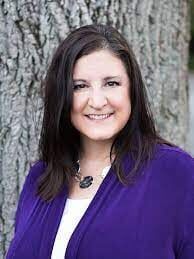Alzheimer’s researcher in Eastern Oregon: ‘There is hope’
Published 5:00 am Monday, July 10, 2023

- Gables
MORO — Physician assistant Erin Haines at Sherman County Medical Clinic in Moro wants those struggling with cognitive decline and Alzheimer’s to know at least one thing.
“It’s not over,” she said.
Haines’s clinic is one of five across the nation testing a new cognitive decline assessment toolkit. The American Academy of Physician Associates in a joint effort with the Cleveland Clinic selected Haines for the project to help collect data on the assessment, which she has been using at her clinic for about three months.
The Davos Alzheimer’s Collaborative is funding the research.
Alzheimer’s is a disease of the brain where cognitive function is declining, and then Alzheimer’s dementia is when cognitive impairment results in impairment in daily life.
“It leads to our inability to live independently,” Haines said, “and do higher processing like mathematics or even name-recognition.”
About 6.7 million people in the United States are living with Alzheimer’s, according to the Alzheimer’s Association, and the U.S. Centers for Disease Control and Prevention estimates by 2060 that number will more than double to about 14 million.
There is research to prevent Alzheimer’s and, as Haines said, “to arrest the progress of this condition, which is a big goal for us with this new toolkit.”
Haines said she has witnessed many people say regarding the onset of dementia that “’They are fine,’ but then a year later, someone cannot function on their own.”
She said it rapidly develops into a burden, an emotional burden especially, and then also a financial burden, for the individual affected as well as “the family, the friends, and the village that it takes to care for that person.”
Haines said her intention is to “identify it early and take as many steps as we can to prevent it from getting to that phase or at least delay it.” The toolkit she is testing is helping out with that, and it also is helping to normalize the conversation about cognitive well-being and decline. She said experiencing cognitive decline is scary.
“And I want to help people live as independently as possible, but it all starts with that conversation,” she said.
Haines now integrates a cognitive mini-assessment into her regular check-ups with patients. She said she hears a lot of thank yous and patients admit not wanting to bring it up on their own.
Toolkit also could curb elder abuse
Lisa Gables is CEO of the American Academy of Physician Associates. The care and treatment of the elderly has been on her mind since she was 12 years old.
When she was 12, Gables began volunteering at a nursing facility, and it was there that she observed the “forgetfulness” and the “loneliness” of this “vulnerable population.”
She then asked herself, “What can I do?” and that question has followed and propelled Gables through her career and her life to where she is today, leading this effort against Alzheimer’s.
“We need to build a movement,” she said.
But as she has become more and more involved with the care and treatment of the elderly, and Alzheimer’s in particular, the more she has learned about an often ignored pandemic — elder abuse.
“There is child abuse, and there is animal abuse,” Gables said, “but there is also elder abuse. We turn a blind eye to it, and it is rampant. Rampant.”
The elderly, especially those with Alzheimer’s, are often taken advantage of, mistreated, or neglected because it is a difficult condition to care for and a significant number of people lack the knowledge and resources to care for those with cognitive decline properly and ethically.
Elder abuse can be anything from prescription misdirection, financial fraud, starvation or even physical restraint. The stories that Gables learns about on a regular basis are “heartbreaking.”
She said she hopes the toolkit Haines and others are working on and testing out will ultimately help to educate people and better prepare people for cognitive decline care and treatment to combat elder abuse.
“There is hope,” Haines said. “There are things we have and can do to change and improve our course.”
Haines wants those struggling with cognitive decline and those with loved ones who are struggling cognitively to know that once mild cognitive impairment starts, it’s not game over.
“We can plan, prevent, delay, mitigate and fight back,” Haines said. “Don’t give up.”
After collecting feedback from the five clinics over this trial toolkit and revising the resource, the AAPA and Cleveland Clinic plan to release it publicly on Nov. 1.
Gables also said she hopes to “showcase the research and findings at conferences and to integrate it into post-graduate education and certificate and training programs.”





